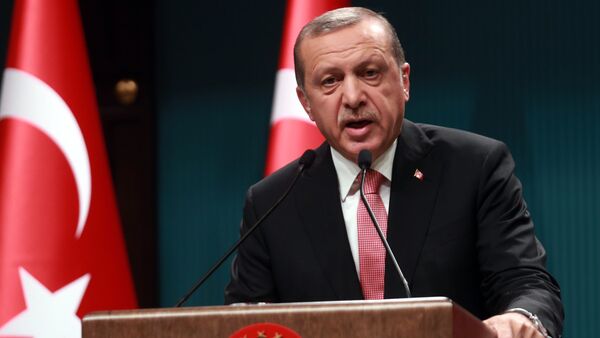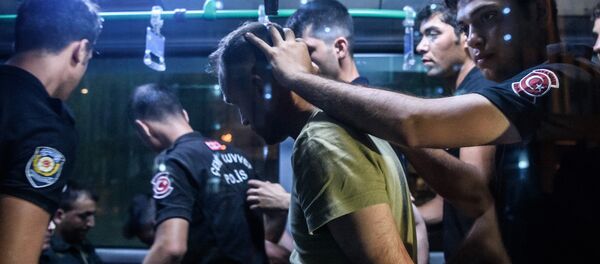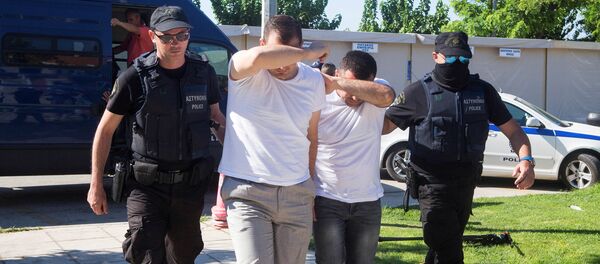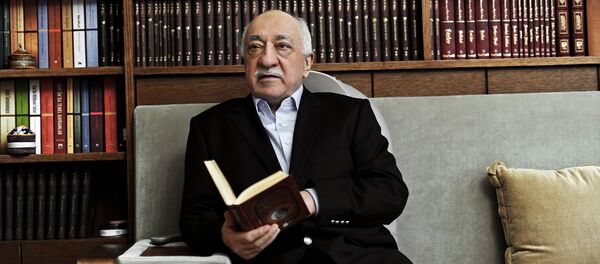“This shows that regardless of all its recent displeasure with Erdogan, the West perceives him as its only ally, a figure capable of maintaining the stability and unity of Turkey,” he added.
The political analyst explained that if the coup had succeeded, it would have meant not just a regional catastrophe but a worldwide one. The supporters of the secular development of Turkey would have faced their religiously-tuned opponents and Turkey would have submerged into the chaos of civil war.
“The world would have had a second Syria, only on a much wider scale,” he added.
The Kurdish movements and formations would have immediately seen their spirits lifted and consolidated, proclaiming a new state, including strategically important parts of Turkish territory containing hydrocarbon crude transshipment routs.
As a result, the West would have immediately lost its stronghold in this essential part of the world. Hence, neither Washington nor Brussels regard any leader other than Erdogan as being able to keep the situation under control.
At the very same time, the political analyst explains, the West no longer holds the appeal that it once did for Erdogan.
There is no previous unity in European society; different elections are set to take place in a number of countries, including presidential elections in the US, and it doesn’t have a positive impact on the policy of leaders of different states.
Hence Dmitry Abzalov is convinced that while maintaining partnership with the Western world, Erdogan will likely in parallel adopt new foreign policy priorities for his home country. Russia and China are likely to become his potential geostrategic partners.
His view is echoed by the head of the Center for Middle East and Central Asia Studies, Semyon Bagdasarov, who is convinced that Erdogan’s post-coup foreign policy towards the West resembles a sort of blackmail.
“The speculation of the country’s media that Turkey might withdraw from NATO, break off its relations with the US and move closer with Russia and Iran is nothing more than blackmail,” he told RIA Novosti.
Nobody in the civilized world is pleased with what is now going on in Turkey, with a massive purge of people who had nothing to do with the coup, he said.
“They have started dismantling monuments to Mustafa Kemal Ataturk (considered the father of modern Turkey) around the country, and right before our eyes it could turn from a secular country into an Islamic state,” Bagdasarov added.
However, he noted that Turkey occupies such an important geostrategic position that the West will by no means abandon it.
However, the political analyst has not ruled out that in order to keep Turkey as a partner, the West might get interested in getting rid of Erdogan, and “one can only guess how they would do that.”
Meanwhile, Fyodor Lukyanov, head of Russia’s Council on Foreign and Defensive Policy, also highly doubts the idea of a "final divorce” between Turkey and the West.
“Turkey’s expulsion from NATO and a breaking off the relationship between Ankara and the West would mean not just the loss of this country as a strategic ally, but the emergence of a new and fairly dangerous adversary for the West,” he told RIA Novosti.
The political analyst said that what is now setting between Turkey and the West is what he called a “period of getting on each other’s nerves.”
The West will proceed with blaming Ankara for violations of civil liberties while Ankara will neglect some joint events and projects like the upcoming meeting of the anti-terrorist coalition members in the US.
Washington, in turn, will not proceed with the extradition of opposition Muslim cleric Fethullah Gulen, whom Ankara accuses of masterminding last week’s attempted overthrow.
Most likely, the political analyst says, in a while it will end up with some 'modus vivendi' (a Latin phrase that means "mode of living" or “way of life”. It is often used to mean an arrangement or agreement that allows conflicting parties to coexist in peace.); the sides will agree to disagree.
Which means that the relationship between Turkey and the West will not be the same, as Turkey itself will never be the same, he added.
There will be qualitative changes within the country. The Turkey which had been following the pro-European vector of development in accordance with Ataturk's legacy has already become a thing of the past.






